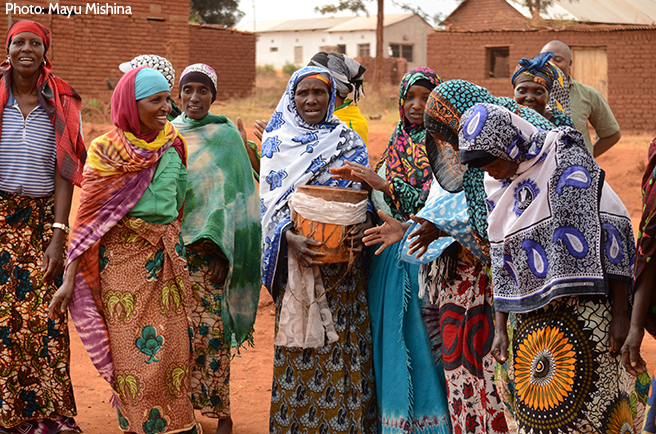Women Lead the Charge in Conservation
Without buy-in from people, conservation efforts rarely work. Which was why, when AWF launched a Reducing Emissions from Deforestation and Forest Degradation (REDD+) project in north–central Tanzania with the Norwegian Embassy a few years ago, one of our main goals was to introduce residents to sustainable livelihood activities that would reduce their reliance on the forests.
Through its work with 18 villages around the Kolo Hills forests, AWF has successfully reduced encroachment into these forests, which serve as water catchments for the Tarangire River. (The Tarangire River flows north to the Tarangire–Manyara ecosystem in the Maasai Steppe landscape, which is habitat for significant wildlife populations.) Even better, however, is the leadership that our interventions have fostered.
Take Hawa Ibrahim Chora. A married mother of four, Hawa was chosen to be one of 120 demonstration farmers through AWF’s REDD+ project. After receiving improved seeds and learning new techniques from AWF-facilitated training, Hawa more than doubled her yield. “When I harvested nine bags of maize from a half-acre, all the community members came and celebrated at my house,” she recounts, smiling shyly.
The breadwinner for her family, Hawa now farms on 1.5 acres. She is an active member of the new farmer’s network that AWF launched (with funding support from the European Union), teaching others new agricultural techniques. And, through her work on the Kolo Village environmental committee, Hawa educates her neighbors about the importance of conservation.

Changing community mentality
In the next town over, Kudra Shamroi is another leader amongst her peers. Kudra is the chairwoman of the Subira Group, a women’s tree nursery group. AWF initially provided Subira Group with 30,000 seedlings and business training. The women’s collective began growing and selling seedlings to community members and area institutions, eventually making enough profit to build a brand-new office building.
When asked why Subira Group has been so successful, Kudra shows just what a savvy businesswoman she is. “Rather than distributing the money from seedling sales to each member, we instead think of how to maximize our profits,” she says, alluding to the notion of reinvesting in one’s business. “Accountability and transparency are also important.”
Kudra adds: “We want to change the community mentality that women can’t do anything.”